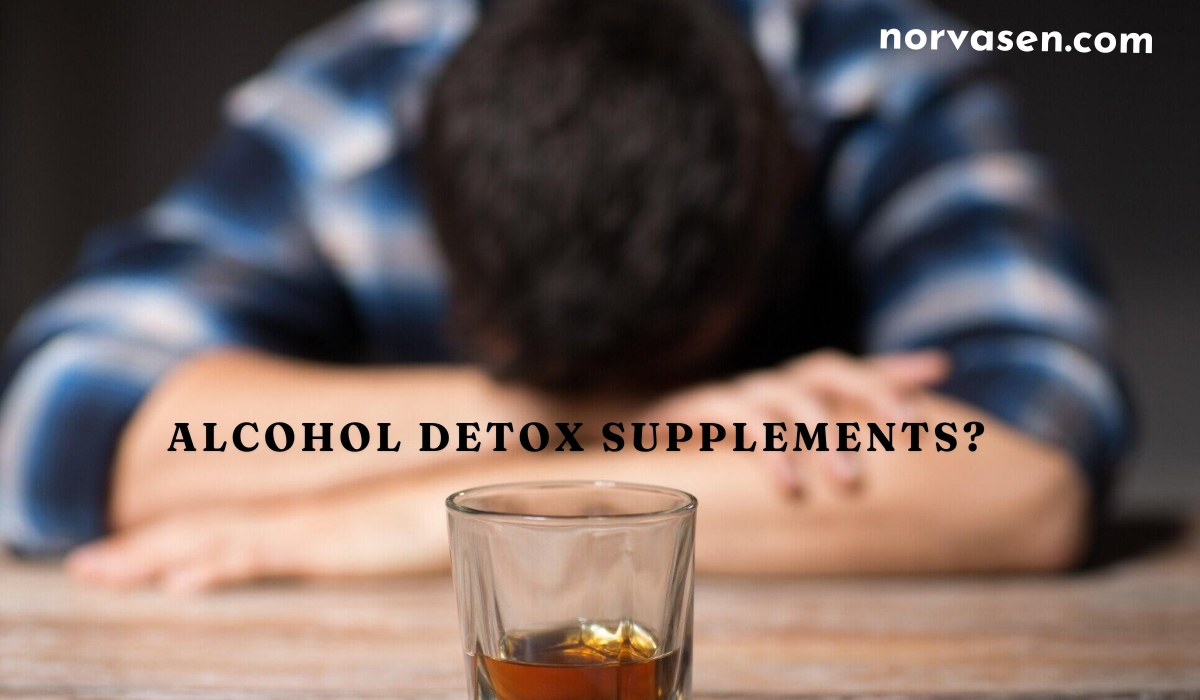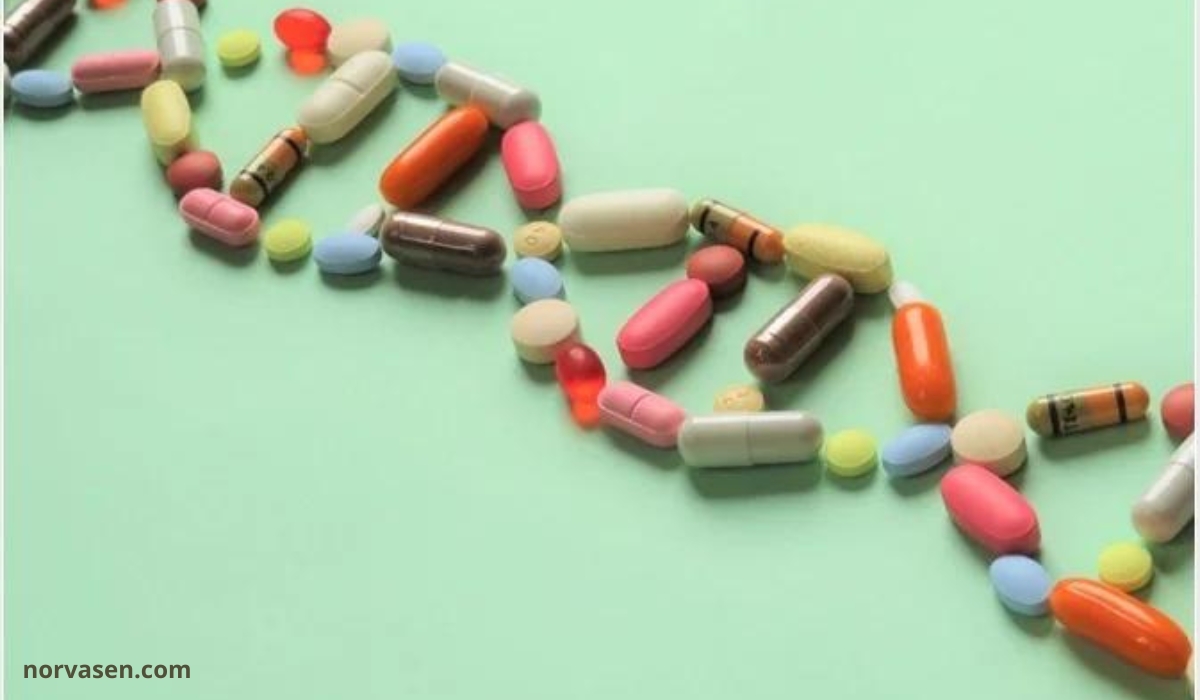Health
Maximizing Results: How to Use Alcohol Detox Supplements Effectively

Did you know that about 20% of American adults have an alcohol use disorder?
Alcohol addiction can have serious physical, mental, and emotional impacts on a person’s life. It can also be difficult to overcome without the right support and resources.
Fortunately, there are effective ways to combat this addiction. One effective way to aid in alcohol detox and recovery is by using supplements.
In this guide, we will discuss how to use alcohol detox supplements effectively to maximize results. These tips can help you or a loved one on the journey towards sobriety and a healthier lifestyle. Read on to learn more.
Consult With a Healthcare Professional
Before starting any new supplement regimen, it is important to consult with a healthcare professional. They can assess your specific needs. They can also advise on which supplements may be most beneficial for you.
These professionals can also monitor your progress. They can make adjustments to ensure the supplements are working effectively. This can help to prevent any potential negative side effects.
Choose High-Quality Supplements
Not all supplements are created equal. It is important to choose high-quality supplements from reputable brands. Look for products that have been certified by third-party organizations, such as the NSF or USP.
This can ensure that the supplement has been tested for purity and potency. It also ensures that it does not contain harmful ingredients. Quality supplements may cost more, but they are worth the investment for your health.
Research Ingredients
When shopping for alcohol detox supplements, it is important to research the ingredients included in each supplement. Some common ingredients include herbs, vitamins, minerals, amino acids, and antioxidants.
Each ingredient may have different benefits and effects on the body. Look for supplements with ingredients that support liver function. These can help to detoxify the body and support overall health during recovery.
Follow Recommended Dosages
Supplements should always be taken as directed on the label or as recommended by a healthcare professional. Taking too much of a supplement can lead to negative side effects. It may not provide any additional benefits.
On the other hand, taking too little may not provide enough of the necessary nutrients. Following recommended dosages can ensure that you are getting the right amount for your needs.
Take Supplements on a Schedule
For maximum effectiveness, it is important to take supplements on a regular schedule. This ensures that your body is receiving the necessary nutrients to support detox and recovery.
Try setting reminders or incorporating supplements into your daily routine, such as with meals or before bed. Consistency is key when it comes to seeing results from supplementation.
Stay Hydrated
During alcohol detox, it is crucial to stay hydrated. This helps to flush out toxins from the body and supports healthy organ function.
Some detox supplements may also have a diuretic effect, meaning they increase urination. This can lead to dehydration if not enough fluids are consumed. Be sure to drink plenty of water throughout the day when taking detox supplements.
Maintain a Balanced Diet
Supplements should not be used as replacements for a healthy and balanced diet. Instead, they can complement and support it.
Eating a variety of fruits, vegetables, lean proteins, and whole grains provides essential nutrients that aid in detoxification and overall health. Additionally, some supplements may work better when taken with certain foods.
Limit Alcohol Consumption
While using alcohol detox supplements, it is important to limit or completely avoid alcohol consumption. Alcohol can counteract the effects of supplements. This can hinder progress and make it more difficult to reach sobriety.
Limiting alcohol intake also reduces the risk of negative interactions between the supplements and alcohol. It can also help to break the cycle of addiction.
Incorporate Exercise
Staying physically active during detox and recovery is important for both physical and mental health. Exercise helps to release endorphins, which can improve mood and reduce cravings for alcohol.
It also supports healthy blood flow, organ function, and overall well-being. Including exercise in your daily routine can enhance the effectiveness of alcohol detox supplements.
Get Adequate Sleep
The body heals and repairs itself during sleep. Getting enough rest is crucial during alcohol detox, as it can support the body’s recovery process.
Lack of sleep can have detrimental effects on physical and mental health. This makes it more difficult to overcome addiction. Aim for 7-9 hours of quality sleep each night while using detox supplements.
Be Patient
Supplements are not a quick-fix solution for alcohol addiction. It takes time for the body to detox and heal, and supplements can aid in this process.
Results may not be immediate and can take weeks or months to see. Be patient and consistent with supplementation, as it takes time for the body to repair itself.
Remember that every person’s journey to recovery is unique and progress may vary. Focus on the overall improvement of your health rather than instant results.
Consider Combination Supplements
Some supplements contain a combination of ingredients that work together to support detox and overall health. These are often more convenient and cost-effective than taking multiple individual supplements.
However, be sure to research each ingredient in the combination supplement. This is to ensure they are safe and effective for your needs. Consult with a healthcare professional before starting any new combination supplements.
Track Progress and Adjust Accordingly
Regularly monitoring your progress can help to determine the effectiveness of alcohol detox supplements. Keep track of any changes in symptoms, energy levels, sleep quality, and overall health.
This can help you and your healthcare professional make adjustments to your supplement regimen as needed. Keep track of any potential side effects as well.
Stay Persistent
It is important to stay persistent in taking health supplements for alcohol detox. Skipping doses or not following recommendations can hinder progress. It can prevent the maximum benefits of supplementation from being realized.
Remember that recovery takes time and effort, but with persistence, positive changes can be made. Stay motivated and focused on the end goal of achieving sobriety and improved health.
Try Different Forms
Supplements come in various forms such as capsules, tablets, powders, or liquids. Some may find one form more convenient or palatable than others.
If you are having trouble taking a supplement in one form, try another form to see if it makes a difference. Just be sure to adjust the recommended dosage accordingly.
Look for Supplements with Scientific Backing
When researching supplements, look for products that have scientific backing or clinical studies supporting their effectiveness. This can provide reassurance that the supplement has been tested and proven to work.
Supplements without any evidence may not be as effective and could potentially be harmful. Do your research before adding any new supplement to your regimen.
Avoid Harmful Ingredients
Some supplements may contain fillers, additives, or other harmful ingredients. These can have negative effects on health and should be avoided.
Be sure to read through ingredient lists carefully and avoid any known allergens or substances that could interfere with other medications. Consulting with a healthcare professional can also help determine any potential risks.
Pair with Therapy or Support Groups
While supplements can aid in the physical aspect of recovery, it is important to address the mental and emotional aspects as well. Consider pairing supplement use with therapy sessions or support groups.
These resources can provide additional support and guidance during the journey towards sobriety. They can also help to identify any underlying issues that may have led to alcohol addiction.
They can also help you be mindful of your drinking triggers and provide coping strategies to avoid relapse. This combination can enhance the effectiveness of supplements and increase the chances of long-term success.
Choose Supplements with Antioxidants
Alcohol consumption can lead to an increase in free radicals in the body, which can damage cells and contribute to various health issues.
Choosing supplements with antioxidants, such as vitamin C or E, can help to combat these free radicals and support overall health during alcohol detox.
Look for Supplements with B Vitamins
B vitamins are essential for liver function and energy production. Alcohol addiction often depletes the body’s stores of B vitamins. Choosing a supplement that contains B vitamins can help replenish these levels and support liver function.
B vitamins are also important for mood regulation. This can help to reduce the risk of depression or anxiety during recovery.
Manage Stress
Stress can be a major factor in both alcohol addiction and the recovery process. Incorporate stress management techniques, such as:
- Mindfulness meditation
- Yoga
- Deep breathing exercises
- Journaling
- Art therapy
These practices can reduce stress levels and provide coping mechanisms that support sobriety. Supplements like magnesium can also help manage stress and improve overall well-being.
Educate Yourself
Knowledge is power when it comes to recovery. Take the time to educate yourself about the different aspects of alcohol addiction, detox, and the role of supplements.
Understanding how your body works and how different substances affect it can empower you to make informed decisions. This education can also help you stay motivated and committed to your sobriety goals.
Celebrate Small Victories
Recovery is a journey, and celebrating small victories along the way can boost your morale and keep you motivated. Acknowledging these achievements can reinforce your commitment to detox.
Make sure to track your progress and reward yourself in healthy ways for every milestone reached. This can provide a sense of accomplishment. It will also help you continue on your journey towards sobriety.
Create a Support System
Having a strong support system in place is crucial for successful recovery. This can include family, friends, support groups, or a sponsor. Surrounding yourself with positive influences can provide encouragement and accountability.
Share your goals and progress with your support system to create a network of encouragement and assistance. This can help you stay on track and provide additional motivation during difficult times.
Stay Positive
Maintaining a positive mindset is essential for successful recovery. Use positive affirmations, focus on your goals, and remind yourself of the benefits of sobriety.
Positivity can boost your perseverance and drive to stay on the path to better health. It can also help you cope with any challenges or setbacks that may arise during the recovery process.
Find Joy in Sobriety
Finding joy and fulfillment in sobriety can enhance your motivation to remain alcohol-free. Discover new hobbies or revisit old ones that bring you happiness. Engage in activities that promote well-being and provide a sense of accomplishment.
Sobriety allows for a clear mind and the ability to fully experience life’s joys. Embrace this new chapter in your journey towards better health and make the most out of every moment. Keep up with regular check-ins with yourself to acknowledge and celebrate how far you have come.
Acknowledge Setbacks
Recovery can be fraught with challenges, and setbacks are not uncommon. Acknowledge any setbacks you encounter and use them as learning opportunities.
Reflect on what led to the setback and devise strategies to prevent it from happening in the future. Remember that recovery is a process, and setbacks are not failures. Stay positive and keep moving forward on your journey towards sobriety.
Stay Informed About New Supplements
The field of nutritional supplements is constantly evolving. Staying informed about new research and emerging products. This can help you identify more effective options for your alcohol detox journey.
Subscribing to reputable health journals or following trusted health experts can be beneficial. They can provide updated information on supplements. This can also help you make informed decisions about which ones may work best.
Understand Potential Side Effects
Be aware of the potential side effects of any supplements you take. Common side effects may include nausea, headaches, digestive issues, or allergic reactions.
Knowing what to expect can help you identify any adverse reactions early on and take appropriate action. If you experience any severe or persistent side effects, consult with a healthcare professional.
Optimizing Alcohol Detox Supplements
Alcohol detox supplements can provide valuable support during the recovery process. It is important to use them in conjunction with a healthy lifestyle and medical guidance.
Remember that every person’s journey to sobriety is unique. It requires patience, persistence, and a strong support system. Use the tips in this guide to help you make the most out of your alcohol detox regimen.
If you enjoyed this article, then check out our other informative blogs. We have a wide variety of topics that will improve anyone’s knowledge base.
Health
The Role of Pharmacogenetics in Addiction Treatment

Pharmacogenetics, the study of how genes influence an individual’s response to drugs, is emerging as a vital component in the field of addiction treatment. By understanding genetic variations, healthcare providers can tailor addiction treatments to better meet the needs of individual patients, enhancing the effectiveness of interventions and reducing adverse effects. This personalized approach promises to revolutionize addiction treatment, making it more efficient and patient-centered.
Each person’s genetic makeup can influence how they metabolize medications. Variations in genes responsible for drug-metabolizing enzymes can lead to differences in drug absorption, distribution, metabolism, and excretion.
Genetic differences can affect how a person responds to medications used in addiction treatment, such as methadone, buprenorphine, and naltrexone. Understanding these differences can help predict which medications will be most effective for a particular individual.
Personalized Treatment Plans
By analyzing genetic information, healthcare providers can select medications that are more likely to be effective and well-tolerated by the patient. This personalized approach can improve treatment outcomes and reduce trial-and-error prescribing.
Improved Efficacy and Safety
Personalized medication choices based on genetic information can enhance the efficacy of addiction treatments, leading to better management of withdrawal symptoms, cravings, and overall recovery.
Genetic testing can identify patients who are at higher risk of adverse drug reactions, allowing for the selection of safer medications. This reduces the likelihood of side effects that could hinder treatment adherence and success.
Prevention of Relapse
Understanding genetic predispositions can help identify individuals who are at higher risk of relapse. This knowledge allows for targeted interventions and more intensive monitoring, improving the chances of sustained recovery.
In addition to medication management, pharmacogenetics can inform the selection of supportive therapies, such as behavioral interventions, that are most likely to be effective for the individual.
Opioid Addiction
These medications are commonly used in the treatment of opioid use disorder. Pharmacogenetic testing can help determine which patients will respond best to methadone or buprenorphine and at what dosages.
Used for both opioid and alcohol dependence, naltrexone’s effectiveness can vary based on genetic factors. Pharmacogenetic insights can guide its use, enhancing its efficacy in preventing relapse.
Alcohol Use Disorder
These medications are used to support recovery from alcohol dependence. Genetic testing can help predict patient response and tolerance, aiding in the selection of the most suitable medication.
Similar to its use in opioid addiction, pharmacogenetics can optimize naltrexone use in treating alcohol use disorder, ensuring it is used effectively and safely.
Nicotine Addiction
These medications are used to aid smoking cessation. Genetic testing can identify which patients are likely to benefit from varenicline or bupropion, improving quit rates and reducing the risk of relapse.
Challenges and Future Directions
While pharmacogenetics holds great promise, several challenges need to be addressed to fully realize its potential in addiction treatment:
Accessibility and Cost
Pharmacogenetic testing can be expensive, limiting access for some patients. Efforts to reduce costs and increase insurance coverage are essential to make these tests more widely available.
Access to pharmacogenetic testing is often limited to certain healthcare settings. Expanding access to these tests in various healthcare environments, including primary care and addiction treatment centers, is crucial.
Clinical Integration
Healthcare providers need education and training on the use of pharmacogenetic testing in addiction treatment. Integrating these tests into clinical practice requires a solid understanding of their benefits and limitations.
Developing standardized guidelines for the use of pharmacogenetics in addiction treatment can help ensure consistent and effective application across different healthcare settings.
Ethical Considerations
Ensuring patient privacy and obtaining informed consent are critical when conducting genetic testing. Patients must be fully aware of how their genetic information will be used and protected.
Addressing potential disparities in access to pharmacogenetic testing is essential to prevent widening health inequities. Efforts must be made to ensure that all patients, regardless of socioeconomic status, can benefit from personalized addiction treatment.
Pharmacogenetics offers a promising path toward personalized addiction treatment, enhancing the efficacy and safety of interventions by tailoring them to the genetic makeup of individual patients.
Health
The Benefits of Expert ABA Therapy for Children with Developmental Needs

Introduction
Applied Behavior Analysis (ABA) therapy is a well-established and scientifically validated approach used to improve the behaviors and skills of children with autism and other developmental disorders. The effectiveness of ABA therapy Fulton County is significantly enhanced when delivered by experts who can tailor individualized treatment plans to each child’s unique needs. This personalized approach ensures that each child receives the most appropriate and effective interventions, leading to better outcomes. This article explores the benefits of expert ABA therapy, the process of creating individualized treatment plans, and the overall impact on children with developmental needs.
Understanding ABA Therapy
ABA therapy is grounded in the principles of behaviorism, which emphasize the relationship between behavior and the environment. The primary goal of ABA therapy is to increase positive behaviors and reduce negative or harmful ones by using evidence-based techniques.
The Importance of Expert ABA Therapy
Expert ABA therapy involves highly trained and experienced therapists who can effectively assess and address the unique needs of each child. The benefits of receiving expert ABA therapy are numerous and include the following:
Accurate Assessments and Diagnoses
Expert therapists are skilled at conducting thorough assessments to accurately identify a child’s developmental needs. These assessments are crucial for developing effective treatment plans and setting realistic goals.
Personalized Treatment Plans
Expert therapists create individualized treatment plans tailored to each child’s unique needs. These plans are designed to target specific behaviors and skills, ensuring that interventions are relevant and effective.
Effective Intervention Strategies
Highly trained therapists use evidence-based intervention strategies that are proven to be effective. These strategies are implemented systematically and adjusted based on the child’s progress and changing needs.
Ongoing Monitoring and Adjustments
Expert ABA therapy involves continuous monitoring and data collection to track the child’s progress. Therapists use this data to make necessary adjustments to the treatment plan, ensuring that interventions remain effective and relevant.
Collaboration with Families
Expert therapists understand the importance of involving families in the therapy process. They provide training and support to parents and caregivers, helping them to reinforce skills and manage behaviors at home.
Creating Individualized Treatment Plans
The process of creating individualized treatment plans is a critical component of expert ABA therapy. This process involves several key steps to ensure that each child’s unique needs are addressed effectively.
Comprehensive Assessments
The first step in creating an individualized treatment plan is conducting a comprehensive assessment. This assessment includes gathering detailed information about the child’s abilities, challenges, and needs.
- Initial Intake and Interviews: The assessment process begins with an initial intake, where therapists gather information from parents, caregivers, and other relevant sources. This includes understanding the child’s medical history, developmental milestones, and current behaviors.
- Direct Observation: Therapists conduct direct observations of the child in various settings, such as home, school, or clinic. This helps identify specific behaviors and environmental factors that influence them.
- Standardized Assessments: Standardized assessment tools are used to evaluate the child’s skills and abilities in areas such as communication, social interaction, and adaptive behavior. Commonly used tools include the Vineland Adaptive Behavior Scales and the Assessment of Basic Language and Learning Skills (ABLLS).
- Functional Behavior Assessment (FBA): An FBA is conducted to identify the functions of specific behaviors, such as self-injury or aggression. This involves analyzing the antecedents (triggers), behaviors, and consequences to understand the purpose of the behavior.
Setting Goals
Based on the assessment results, therapists set clear and measurable goals that are tailored to the child’s needs. These goals guide the intervention process and provide a benchmark for tracking progress.
Developing Intervention Strategies
Therapists develop specific intervention strategies that are designed to achieve the set goals. These strategies are based on evidence-based techniques and are tailored to the child’s unique needs.
Creating a Reinforcement Plan
A critical part of the treatment plan is creating a reinforcement plan. This involves identifying items, activities, or stimuli that can be used as reinforcers in therapy. Understanding the child’s preferences is crucial for motivating and engaging them in therapy.
Implementation and Monitoring
Once the treatment plan is developed, it is implemented with close monitoring and regular adjustments to ensure effectiveness.
- Therapy Sessions: Conducting therapy sessions that focus on the goals and interventions outlined in the treatment plan. Sessions can take place at home, in a clinic, or in the community.
- Data Collection and Analysis: Systematically collecting data on the child’s behavior and progress during each session. This data is analyzed to track progress and identify areas that need adjustment.
- Regular Reviews: Holding regular review meetings with parents and caregivers to discuss progress, challenges, and any necessary changes to the treatment plan.
- Adjusting Interventions: Making data-driven adjustments to interventions based on the child’s progress and changing needs. This ensures that the therapy remains relevant and effective.
The Benefits of Expert ABA Therapy
Expert ABA therapy offers numerous benefits for children with autism and other developmental disorders, as well as their families.
Improved Communication Skills
One of the primary goals of ABA therapy is to enhance communication skills. Expert therapists use techniques such as modeling, prompting, and reinforcement to teach children how to communicate effectively. Improved communication skills can significantly enhance a child’s ability to interact with others and participate in daily activities.
Enhanced Social Skills
ABA therapy focuses on teaching social skills, such as sharing, taking turns, and understanding social cues. Expert therapists use role-playing, social stories, and other techniques to help children navigate social interactions more effectively. Enhanced social skills can lead to improved relationships with peers and family members.
Increased Independence
ABA therapy emphasizes the development of self-help and daily living skills. Expert therapists teach children to perform tasks independently, such as dressing, grooming, and cooking. Increased independence can enhance a child’s confidence and ability to participate in everyday activities.
Reduction of Problematic Behaviors
Expert ABA therapy is highly effective in reducing problematic behaviors, such as aggression, self-injury, and tantrums. By identifying the underlying causes of these behaviors and implementing targeted interventions, therapists can help children develop more appropriate ways of expressing themselves and coping with challenges.
Generalization of Skills
One of the strengths of expert ABA therapy is its focus on generalization, which is the ability to apply learned skills in different settings and situations. By teaching skills in a variety of contexts, ABA therapy ensures that children can use their new abilities in real-life scenarios. Generalization of skills enhances a child’s overall functioning and adaptability.
Techniques Used in Expert ABA Therapy
Expert ABA therapists use a variety of evidence-based techniques to teach new skills and modify behavior. These techniques are tailored to the child’s needs and are implemented systematically to ensure effectiveness.
Discrete Trial Training (DTT)
Discrete Trial Training (DTT) is a structured teaching method that breaks down skills into small, manageable components. Each component is taught individually, with repeated trials and reinforcement. DTT is particularly effective for teaching basic skills, such as language, social interactions, and academic concepts.
Natural Environment Teaching (NET)
Natural Environment Teaching (NET) focuses on teaching skills in the child’s natural environment, such as home or school. This approach promotes generalization and helps children apply learned skills in real-life situations. NET emphasizes the use of natural reinforcers, such as praise and social interactions, to motivate the child.
Pivotal Response Treatment (PRT)
Pivotal Response Treatment (PRT) targets pivotal areas of a child’s development, such as motivation and self-management. By focusing on these key areas, PRT aims to produce broad improvements in behavior. PRT is child-directed and incorporates play and natural interactions to create a positive and engaging learning experience.
Task Analysis
Task analysis involves breaking down complex tasks into smaller, manageable steps. Each step is taught sequentially, allowing the child to master each component before moving on to the next. Task analysis is particularly useful for teaching self-help skills, such as dressing, grooming, and cooking.
Social Skills Training
Social skills training involves teaching children how to interact appropriately with others. This includes understanding social cues, practicing conversational skills, and developing friendships. Role-playing and social stories are common techniques used in social skills training.
Communication Skills Training
Improving communication skills is a central goal of ABA therapy. Techniques such as picture exchange communication systems (PECS), sign language, and augmentative and alternative communication (AAC) devices are used to enhance verbal and non-verbal communication.
Behavior Management Strategies
ABA therapy includes strategies for managing challenging behaviors. This involves identifying the function of behaviors, developing behavior intervention plans, and using reinforcement and consequence techniques to encourage positive behavior change.
Conclusion
Expert ABA therapy offers numerous benefits for children with autism and other developmental disorders. By providing individualized treatment plans tailored to each child’s unique needs, expert therapists can effectively address specific challenges and promote skill development. The process of creating and implementing personalized treatment plans, combined with the use of evidence-based techniques, ensures that ABA therapy is both effective and meaningful. Through dedication, collaboration, and a commitment to continuous improvement, expert ABA therapy helps children achieve their full potential and lead fulfilling lives.
Health
Benzoyl Peroxide vs Salicylic Acid[1] – Which is Best for Acne

In the field of acne control, there’s much debate in comparing benzoyl peroxide vs salicylic acid[3] . It’s a long-running topic of conversation relating to a problem that affects millions of people across the world, and it’s one that we examine for ourselves here.
Look at reviews online, and you’ll find that people have success with both when fighting persistent breakouts. Of course, the truth is they’re both effective, but which is right for your skin and your needs?
To answer those questions and more, stay tuned as we explain how each option works and the reasons for choosing one over the other.
Benzoyl Peroxide vs Salicylic Acid[4] – Separating the Two
In order to separate benzoyl peroxide (BP) from salicylic acid, we need to provide some clarity as to how each one does its job. So, let’s try to settle the benzoyl peroxide vs salicylic acid[5] debate once and for all! We start by looking at BP products.
Benzoyl Peroxide – The Bacteria Buster!
So, BP washes contain a powerful microbial agent that’s really good at killing the bacteria that causes acne – Propionibacterium acnes or P. acnes for short! It’s also good at unclogging pores and removing dead skin cells and excess oil.
It’s particularly effective at dealing with inflammatory acne, which includes cysts, papules and pustules. When using antibiotics for this kind of acne, it can lead to antibiotic resistance, which means they’re not a sustainable option. However, you can use benzoyl peroxide for as long as you need to.
BP is relatively fast-acting (results usually come in 6 to 8 weeks), too, but you do need to brace yourself for a little irritation and redness. Rather than being a bad sign, this outcome actually indicates you’re doing the right thing. It’s just a matter of ensuring that it’s kept to a minimum by choosing the right strength.
Salicylic Acid – the Pore Clearer
Now we look at salicylic acid, which is a BHA (beta-hydroxy acid) that’s able to penetrate deeply into your pores, dissolving dead skin, oil and dirt in the process. It, too, has anti-inflammatory properties, but it differs from benzoyl peroxide in that it provides more of an exfoliating action that makes it more suitable for non-inflammatory acne, i.e. blackheads and whiteheads.
It’s also gentler on the skin than BP washes, so if you have sensitive skin, it might be the better option. However, because it is a little less impactful than benzoyl peroxide, it can take a little longer to treat more severe types of acne.
The Benzoyl Peroxide vs Salicylic Acid[6] Debate is a Dead Heat!
While we’d like to be able to give you a clear winner in this debate, the truth is that it’s not really a direct competition between the two. You see, the right choice depends on you. If you have inflammatory acne (the more severe kind), you’re likely to be better served by benzoyl peroxide.
However, if you’ve got blackheads or whiteheads to deal with, then salicylic acid could be the right choice. It’s a real horses-for-courses kind of situation, so you need to take a look at what you’re experiencing, and that should inform your decision.
So, there you have it – there is no one-size-fits-all best option for anyone. We hope reading our blog equips you to make the right choice and get the clear, pimple-free skin you deserve with minimal hassle.
Keyword
Keyword
Keyword
Keyword
Keyword
Keyword
-

 Tech5 months ago
Tech5 months agoExploring the Features of Innocams: The Future of Security
-

 Home Improvement3 months ago
Home Improvement3 months agoEco-Friendly Round Rug Options for Sustainable Living in NZ
-

 How-To Guides2 months ago
How-To Guides2 months agoComprehensive Guide to Cockwarming: Enhancing Intimacy and Connection
-

 Fashion3 months ago
Fashion3 months agoBlack Magic: The Elegance and Sophistication of Ultimate Homecoming Dresses in Black
-

 Apps and Games3 months ago
Apps and Games3 months agoDiscover Tickzoo: The Ultimate Platform for Video Content Lovers and Creators
-

 Business5 months ago
Business5 months agoUnlock Potential: Explore Pikruos Services
-

 Blog3 weeks ago
Blog3 weeks agoPossiblyethereal: Exploring the Ethereal Unveiling Abstract Ideas
-

 Entertainment4 months ago
Entertainment4 months agoDiving into the Audio-Visual Experience with AV Tub: Innovating Our World of Media


















